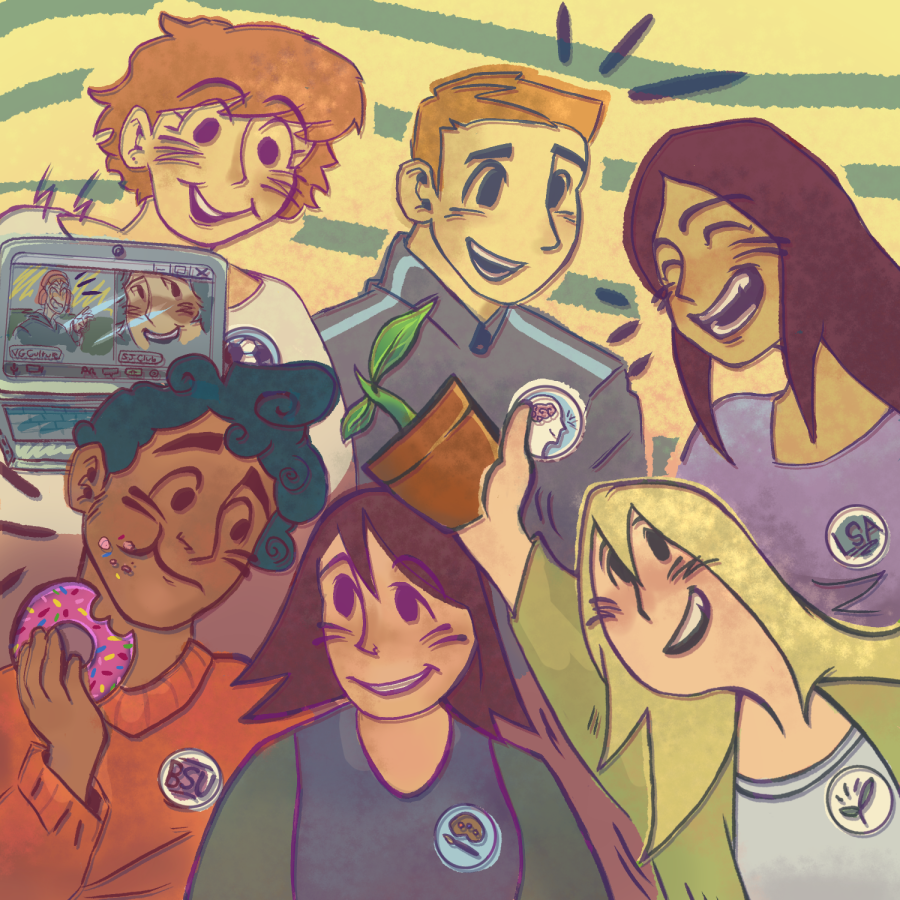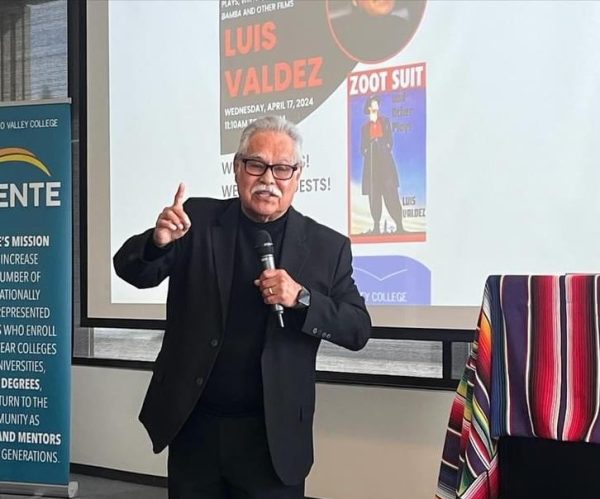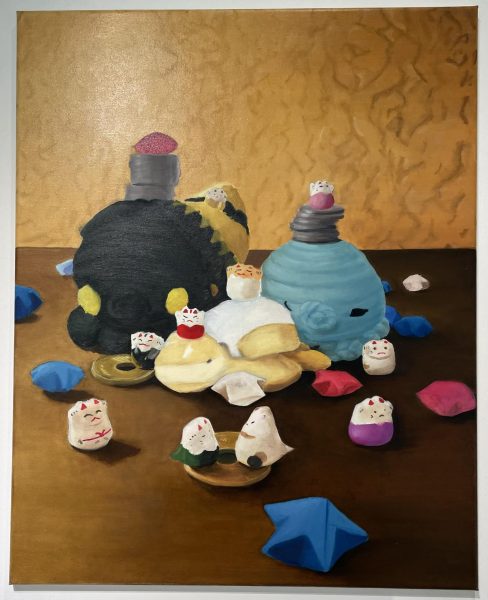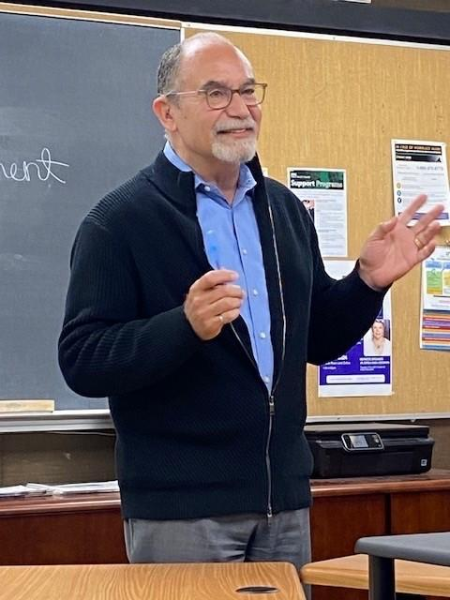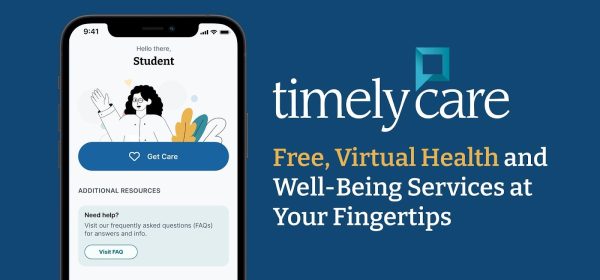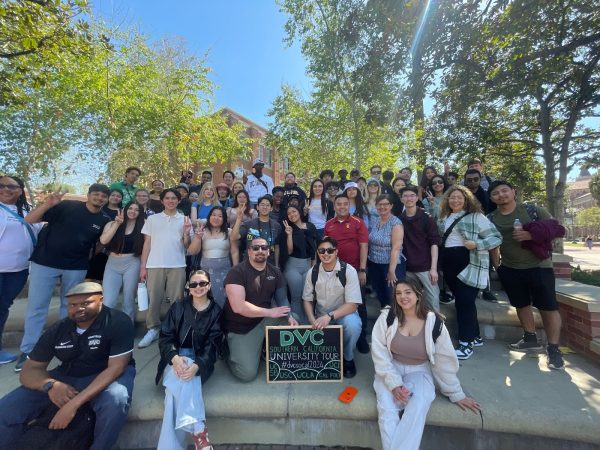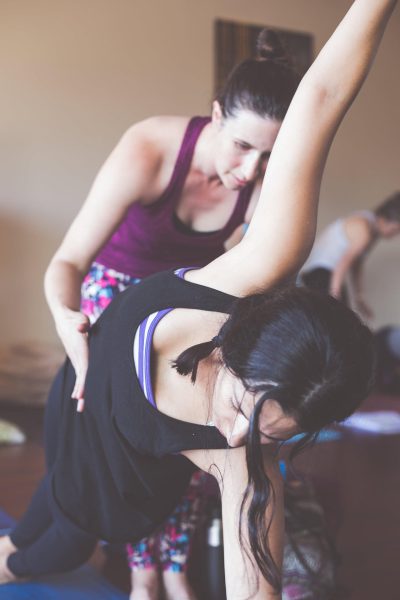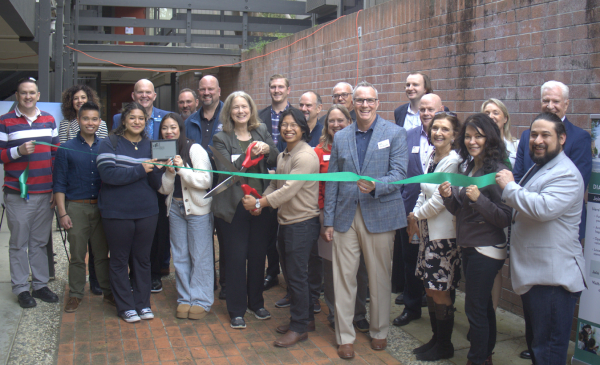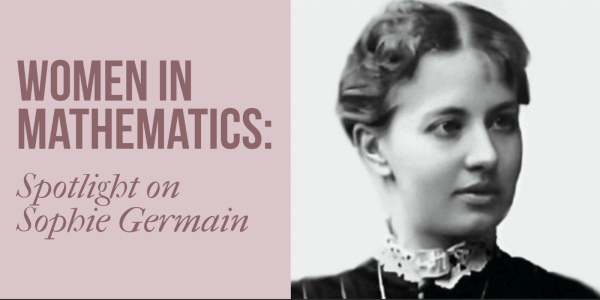Clubs Return in Force After Three Years of Lockdown
The Diablo Valley College quad area sprang to life on Mar. 16 with colorful tri-folds, tables, and students bustling between them, eager to fill out their “club passports” with stamps to redeem for free donuts.
But food, while a nice incentive, was not the real reason students attended Club Day en masse this month. Instead, they were trying to get exposed to the many student communities that can enrich their experience at DVC.
In the process, Club Day 2023 saw one of its busiest events in recent memory as it marked the full recovery of many student organizations on campus following the pandemic, according to some club representatives.
In particular, clubs like Latinx Student Alliance (LSA) and Black Student Union (BSU), which were safe spots for students of color before the pandemic, now find themselves rebuilding with renewed momentum.
“We’re the hub for students who are part of Latinx culture,” said Josue Gomez, an LSA member. The club had already been popular, he added, but “the pandemic really halted everything.”
What matters most, according to his colleague Flavio Cuevas, is that LSA continues to foster a sense of community on campus.
“I find it important to unite the Latin American diaspora in a way that is more impactful than before the pandemic,” said Cuevas, the club’s secretary.
Kristen Freeman, the secretary of BSU, agreed it’s important for clubs to bounce back following Covid, but added that many are still struggling to connect with students again.
“We are reviving the previous BSU,” said Freeman. “We’re hoping we can promote it as much as we can.”
To that end, many clubs are seeking new ways to engage with students.
The Video Game Culture and Social Justice clubs, for example, offer a hybrid model in which students are welcome to participate in meetings in-person or virtually, usually through Zoom or Discord calls.
The hybrid model reflects the new reality for college students, mirroring their opportunities to take in-person or online courses. For students who aren’t on campus throughout the week, a hybrid club can be the only way they participate in extracurriculars.
However, for some student organizations, like the DVC Soccer Club, in-person participation remains essential. In the absence of a men’s soccer team on campus, the newly formed Soccer Club seeks to draw in players and holds its meetings on the football field.
While previous clubs are seeking to restore former safe spaces, some students are finding new, creative ways to make them.
For instance, the Positive Psychology Club is committed to helping improve students’ mental and emotional well-being through its productive gatherings.
“We do meditation, overcoming procrastination, [and] working out,” said Nikko Lebra, the club’s president. “We just really focus on building good mental health for all our members.”
Other clubs directed students toward more niche interests, like the Horticulture Club, which showcased the white borage, a plant with edible leaves that taste similar to cucumbers, while the Creative Arts Society promoted its upcoming sticker-making workshop.
Nate Wang, a DVC student involved with multiple clubs, highlighted the importance of having a wide variety of extracurriculars on campus. For him, clubs are all about “the social aspect.”
“It helps you make more friends,” Wang said, “and gets you more involved with DVC as well.”
(Illustration by Ericka Carranza)





































































